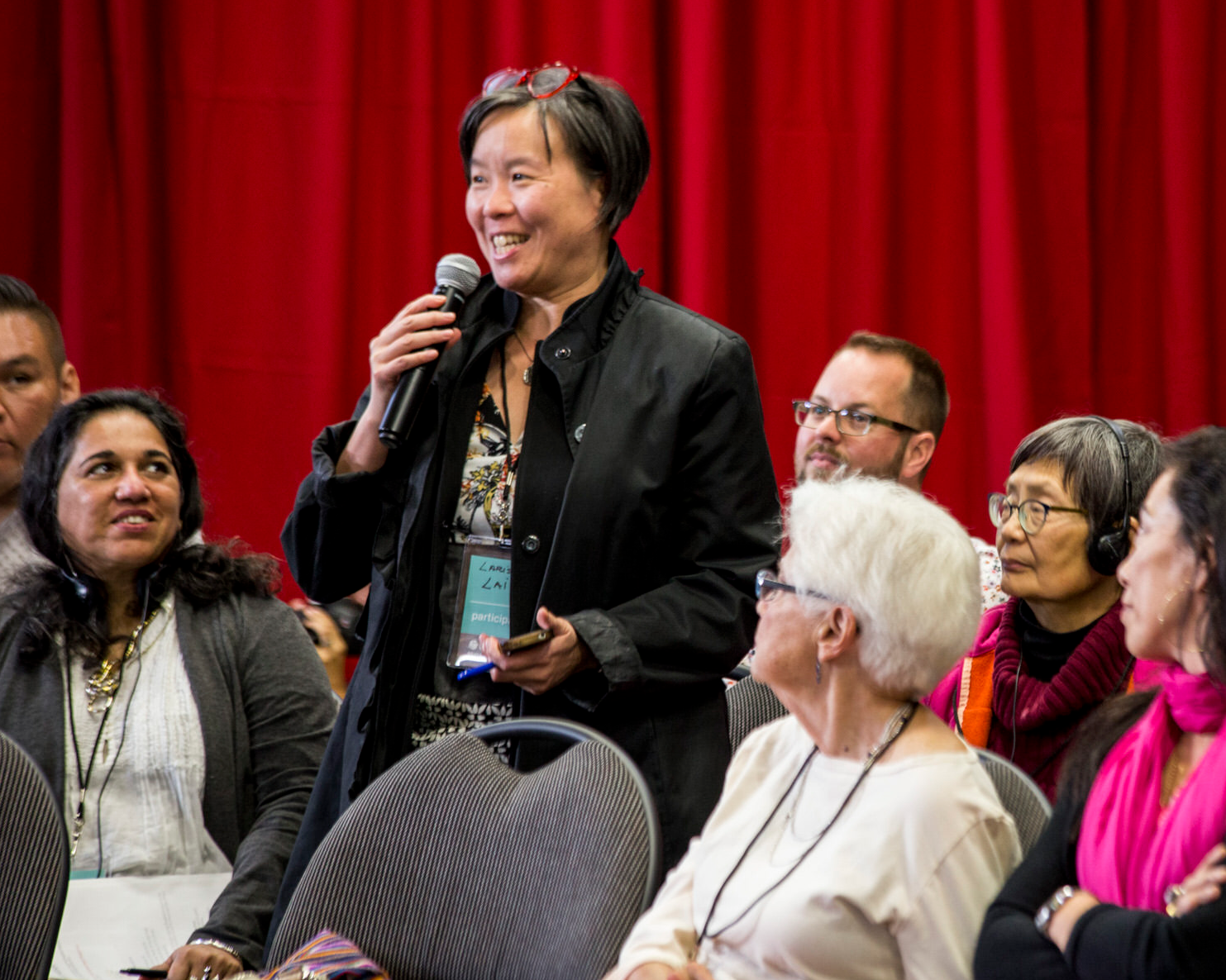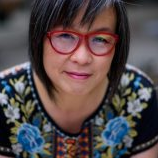 Larissa Lai at the PC/Cp Gathering 2017 on Lekwungen territory.
Larissa Lai at the PC/Cp Gathering 2017 on Lekwungen territory.
Photo credit: Kirk Schwartz.
I co-chaired this session with the wonderful Janet Lumb from Montreal. The title was set before I came on board. It was the first time in ages that I’d been involved in an event focused on Asian Canadians. I had just come from David Garneau and Rinaldo Walcott’s session Redness: Blackness: Thinking which was so intense, difficult, and necessary.
My own thinking these past few years has been around questions of kinship and relation-building because I’m aware of what a relatively privileged place Asianness occupies within the contemporary and historical global order. When I say “relatively,” I mean that we are still so profoundly subject to racialization and all the violence that can go with that. At the same time, as Asian economic and political power is rising on the global stage, we are newly answerable for Asian imperialisms, especially in Africa and the Americas.
I came in wanting to talk about these issues. Most of the attendees were younger artists I hadn’t met before. They were all very smart and very engaged. Janet, with her long, powerful, and committed history of running Accès Asie in Montreal, came in also with heart and mind very much focussed on the needs of Asian communities in and of themselves. Under ongoing conditions of anti-Asian racism, we need to fight back and we need to continue to educate and empower our people, especially youth and elders. We talked a little bit about the powerful work being done by activists, artists and community members across the generations to fight off the developers in Vancouver’s Chinatown. We talked about the sharing of stories from older generations to younger ones, and also about how to explain to more conservative older generations the need for art, the need to talk about issues like racism, sexuality, gender, class, able-ism, and more.
This was a small, but passionate group of engaged artists. I couldn’t help feeling, however, that we were struggling a bit for focus. My general feeling is that the site of “Asianness” is shifting very rapidly right now, but the ways that it is shifting are complicated and profoundly relational. This doesn’t make the conditions we know about go away. The histories (both past and ongoing) of exclusion, denied entry, racialized policies of economic/labour extraction (as in the Chinese Head Tax, but also the Live-In Caregiver Program, and Immigrant Investor Program), expulsion, uprooting, redress, and movement remain with us. But particularly with regards to Indigenous resurgences and the call to attend to Black lives, we also need to be thinking relationally. Also, with the growing economic and imperial power of Asia, bumping up against the ongoing racism we have always faced in Canada, a complex discussion about power as flow and its impact on bodies, lives, and practices—artistic and otherwise—is necessary.
The panel title was a bit broad. For future events, I might suggest making the session form more focused. Perhaps there can be several panels slanted in whole or in part in Asian directions. I, for one, would like to be engaged in conversations across racial forms and histories. But I’d also be delighted to take part in a session that’s about artistic and activist practice across the generations. A critical or thematic focus might help us separate out the various discussions in order to have them more productively. Nonetheless, I am deeply grateful for the wonderful experience I had in this session and at the PC/Cp gathering as a whole.

Larissa Lai has authored two novels, "When Fox Is a Thousand" and "Salt Fish Girl;" two poetry collections, "sybil unrest" and "Automaton Biographies," and a critical book "Slanting I, Imagining We." A Canada Research Chair at the University of Calgary, she directs the Insurgent Architects' House for Creative Writing. In Fall 2018, Arsenal Pulp Press will publish her new novel, "The Tiger Flu." Photo credit: Monique de St-Croix.